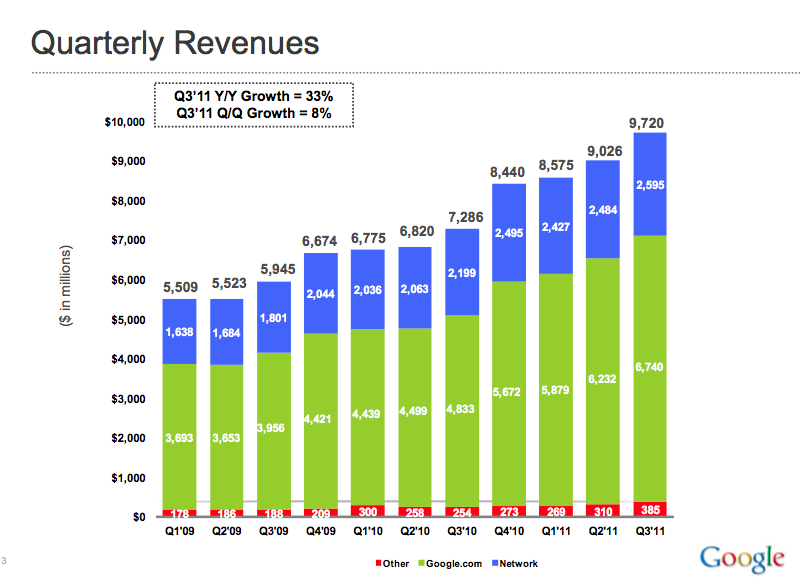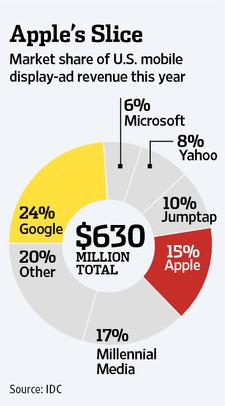Google earns 80% of its mobile revenue from iOS, just 20% from Android
Google doesn't publicize its Android revenues, but has called out the the growing minority of its revenues attributed to mobile devices. Compared to the $2.5 billion it expected to earn on mobile devices this year, Google reported $38 billion in total revenues for 2011, most of which comes from paid search results presented to desktop PC users.
In figures presented to the court overseeing Oracle's patent and copyright infringement case, however, Google reports that very little of its mobile revenue actually comes from Android.
The last four years of Android revenue amounted to less than $550 million, the company's documents stated, according to a report by The Guardian. Spread across four years, that indicates that Android contributes very little toward Google's mobile revenues.
Google previously described a $1 billion run rate for mobile revenues in just 2011, which includes both mobile ad revenue and Google's 30 percent cut on paid Android app sales through Google Play (formerly Android Market).
Many observers had mistakenly interpreted Google's mobile revenues to mean Android revenues, but the majority of Google's mobile search, maps and YouTube traffic come through Apple's iOS devices, which make up more than half of all high end mobile devices and more than 80 percent of all tablets.
Despite Android being widely used by smartphone makers, Google has struggled to gain traction for app sales in Android Market. Apple's iOS platform continues to eat up around 90 percent of mobile software revenues.
Biting the hand that feeds ads
Google's efforts to take over Apple's iPhone sales with Android licensing and its attempts to blunt Apple TV with with its own Android-based Google TV in 2010 and eat up iPad sales with Android 3.0 Honeycomb tablets last year have all helped to sour the once close partnership the search giant formerly maintained with Apple.
Apple has subsequently scaled back its support for Google services, ignoring many of Google's enhancements to Maps (including navigation) and YouTube (including movie rentals) in its iOS client apps. Apple appears to be working to develop its own maps services, as evident in the new iPhoto app for iOS, following several acquisitions of smaller mapping companies.
Apple has also added Microsoft Bing and Yahoo search to its desktop and mobile Safari browsers (albeit as optional search engines), and appears tilting toward making Baidu the default search engine for Chinese users.
Apple is also resisting efforts by Google to force Safari users into web advertisement cookie tracking, something Apple has opted Safari users out of by default since its original release.
In addition to developing its own mapping services, Apple has also launched iAd as its own mobile advertising unit to help developers monetize their free apps.
Despite scathing predictions of death from competing ad networks and marketing organizations, iAd has successfully retained 15 percent of all US display ad revenue in 2011, despite only being available on iOS devices, which make up roughly half of all mobile devices.
 Daniel Eran Dilger
Daniel Eran Dilger














 Mike Wuerthele
Mike Wuerthele
 Malcolm Owen
Malcolm Owen
 Chip Loder
Chip Loder

 William Gallagher
William Gallagher
 Christine McKee
Christine McKee
 Michael Stroup
Michael Stroup
 William Gallagher and Mike Wuerthele
William Gallagher and Mike Wuerthele






